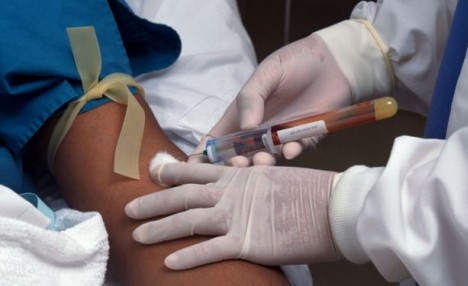Depression Diagnosed by a Blood Test?

Depression is a difficult disorder to have and to treat. Symptoms can vary from person to person, and often what is actually depression is misdiagnosed for something else. One way to make it easier for physicians and mental health workers to determine whether or not a patient is suffering from depression may be to do a simple blood test.
As genetic research provides more detailed information about how the mind and body work together, it may soon be possible for medical professionals to rely on genetic markers in the blood to help confirm a diagnosis of depression.
Researchers from Holland are well on the way to identifying the markers necessary to identify Major Depressive Disorder, or MDD. The author of the study, Dr. Sabine Spijker, says, “This is a first, but major step in providing a molecular diagnostic tool for depression.”
Dr. Spijker’s study used the measurement of RNA produced from DNA to determine the level of activity a particular gene produced. Using a complicated process, the researchers were able to identify seven different genes that are found in whole blood samples that allowed them to differentiate between healthy patients and those suffering from MDD who were not being medicated.
Using a blood test to determine whether or not someone is suffering from depression would allow the diagnosis to be more objective and not be left in the hands of an individual relying on a set of criteria and instincts to make the determination. While the study simply indicates the possibility and provides no implantable diagnostic tools at this stage, it offers hope for more rapid and more accurate treatment in the future for those people suffering from the often debilitating effects of depression.
Shadra Bruce is a contributing writer for Mental Health News.